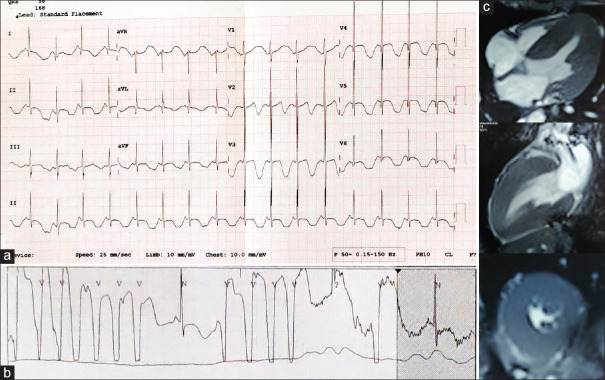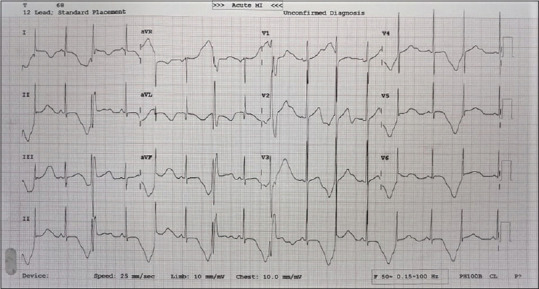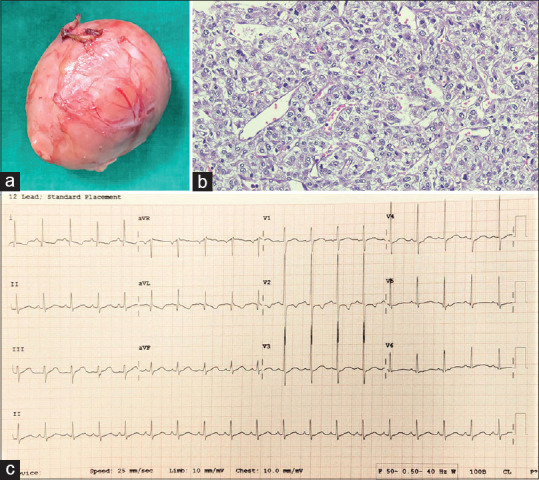Pheochromocytoma presenting with recurrent syncope, prolonged QT interval and macroscopic T-wave alternans.
IF 0.7
Q4 CARDIAC & CARDIOVASCULAR SYSTEMS
Annals of Pediatric Cardiology
Pub Date : 2024-11-01
Epub Date: 2025-04-24
DOI:10.4103/apc.apc_215_24
引用次数: 0
Abstract
An 11-year-old boy presented with recurrent exertional syncope for 1 month. The baseline electrocardiogram (ECG) suggested a diagnosis of long QT syndrome with macroscopic T-wave alternans. Volatility of blood pressure and left ventricular hypertrophy triggered further investigations, revealing pheochromocytoma as the primary cause. The child underwent laparoscopic resection of the tumor with subsequent resolution of ECG changes and symptoms. The genetic testing was negative for known mutations implicated with prolonged QT interval.



嗜铬细胞瘤表现为复发性晕厥,QT间期延长和肉眼可见的t波交替。
一个11岁的男孩表现为反复的劳力性晕厥1个月。基线心电图(ECG)提示长QT综合征的诊断与宏观t波交替。血压波动和左心室肥厚引发了进一步的调查,发现嗜铬细胞瘤是主要原因。患儿行腹腔镜肿瘤切除术,随后心电图改变和症状得到缓解。基因检测与QT间期延长有关的已知突变呈阴性。
本文章由计算机程序翻译,如有差异,请以英文原文为准。
求助全文
约1分钟内获得全文
求助全文
来源期刊

Annals of Pediatric Cardiology
CARDIAC & CARDIOVASCULAR SYSTEMS-
CiteScore
1.40
自引率
14.30%
发文量
51
审稿时长
23 weeks
 求助内容:
求助内容: 应助结果提醒方式:
应助结果提醒方式:


